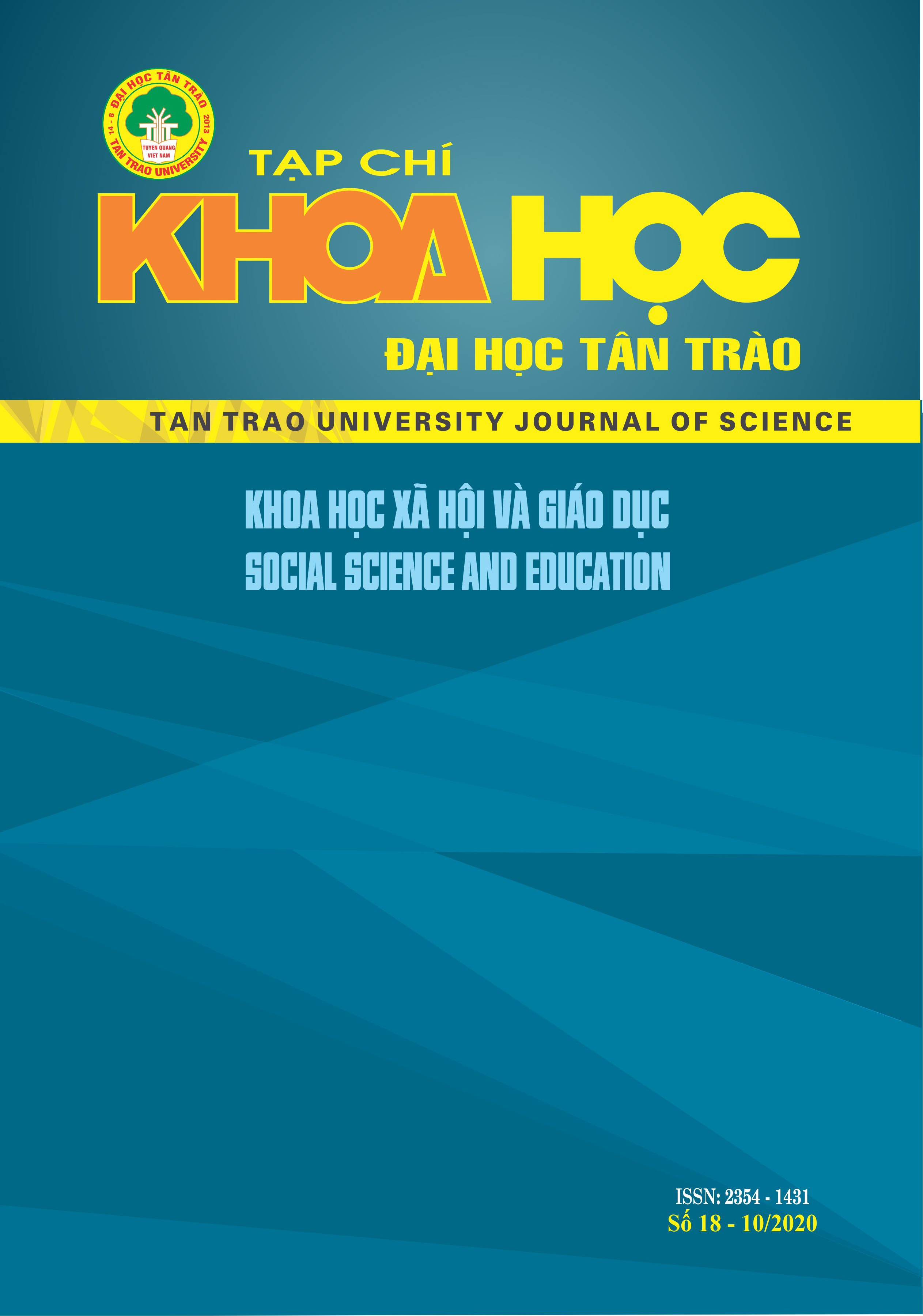CONSULTING ACTIVITIES OF STUDYING CONSULTANTS FOR STUDENTS IN UNIVERSITIES
DOI:
https://doi.org/10.51453/2354-1431/2020/397Keywords:
studying consultants, consulting activities, students, lecturers, universities.Abstract
At universities in Vietnam, the credit-based training system has become a mandatory regulation of Ministry of Education and Training to support students to ferform their autonomy in the most effective way. An important part of the credit-based training procedure is the board of studying consultants who play the role of a homeroom teacher to manage students, and they also are studying consultants, scientific and career researchers for students. The article mentions concepts, content and skills that are necessary to consult students in universities.
Downloads
References
1. Tran Cong Su (2016), Support system for learning advisors on mobile devices, Journal of Science, Can Tho University, No. 47/2016.
2. Tran Thi Minh Duc (2012), Study advisor in universities, National University Publishing House, Hanoi.
3. Luong Tu Hanh (2015), Some solutions to improve the quality of training through academic advising at universities, Educational Magazine, special issue December 2015.
4. Tran Van Phuc, Nguyen Kim Chuyen (2016), Development of academic advisor models at Dong Thap University in the current period, Educational Magazine, special issue December 2016.
5. Educational Research Institute - Ho Chi Minh City University of Education (2014), Proceedings of national seminars: “The role of academic advisor in credit training at colleges and universities. study in Vietnam ”, Ho Chi Minh City, 2014.
Downloads
Published
How to Cite
Issue
Section
License

This work is licensed under a Creative Commons Attribution-ShareAlike 4.0 International License.
All articles published in SJTTU are licensed under a Creative Commons Attribution-ShareAlike 4.0 International (CC BY-SA) license. This means anyone is free to copy, transform, or redistribute articles for any lawful purpose in any medium, provided they give appropriate attribution to the original author(s) and SJTTU, link to the license, indicate if changes were made, and redistribute any derivative work under the same license.
Copyright on articles is retained by the respective author(s), without restrictions. A non-exclusive license is granted to SJTTU to publish the article and identify itself as its original publisher, along with the commercial right to include the article in a hardcopy issue for sale to libraries and individuals.
Although the conditions of the CC BY-SA license don't apply to authors (as the copyright holder of your article, you have no restrictions on your rights), by submitting to SJTTU, authors recognize the rights of readers, and must grant any third party the right to use their article to the extent provided by the license.


